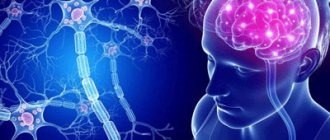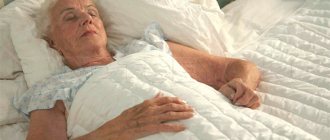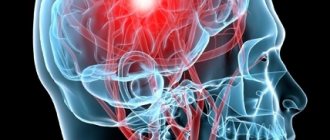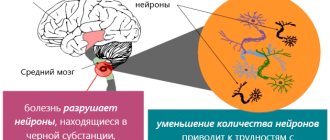Pregnancy and the birth of a baby are incredible happiness and a precious experience for every woman. But it happens that mental illness overshadows motherhood. Pregnancy and childbirth are associated with large-scale changes in the body, primarily hormonal. Changes can trigger a mental disorder or cause a relapse of an existing disease.
Changes in mental status after childbirth can be mild (postpartum blues) or severe (postpartum depression or postpartum psychosis). Let's figure out how these states differ.
Baby or postpartum blues is a condition that about 70-80% of women experience after childbirth. Symptoms include mood swings, tearfulness, and mild anxiety or depression. Usually begins 3-4 days after birth and lasts about a week. Blues are associated with physiological changes and are considered a normal reaction of the body that does not require treatment.
A more serious condition, with symptoms reminiscent of the blues, is postpartum depression. Postpartum depression affects approximately 10-20% of women. They experience symptoms such as apathy, poor sleep, lack of energy, lack of appetite, and negative thoughts. They last for more than 2 weeks. It is imperative to visit a psychotherapist or psychiatrist; this condition should be treated comprehensively.
An even more serious illness is postpartum psychosis. It is accompanied by symptoms of depression, mania, as well as behavior that is not typical for a woman (overly active or too withdrawn), hallucinations, and delusions. Symptoms usually come on suddenly and can change quickly.
Symptoms of postpartum psychosis
Symptoms range from depression with apathy and guilt to gross disturbances of perception in the form of illusions and hallucinations, thinking disorders in the form of obsessive, overvalued and delusional thoughts. Postpartum psychosis is usually preceded by a period of disturbed sleep and anxiety.
Fear may seem justified at the beginning (concern for the child’s health, doubts about proper nutrition), but as the painful condition develops, it becomes absurd and completely covers the sick person.
In a state of psychosis, dangerous aggressive behavior may occur. Therefore, it is very important to consult a psychiatrist at the first signs of postpartum psychosis, or even if you suspect its development.
In the vast majority of cases, postpartum psychoses are completely reversed.
Signs of postpartum depression
Unfortunately, postpartum depression in most cases is not detected and treated. This is explained by the fact that young mothers extremely rarely realize that they are sick and even less often seek medical help. Typically, women with this pathology show signs such as anxiety, lack of strength, tearfulness, feelings of sadness and loneliness.
Patients complain of poor sleep, decreased appetite, and depressed mood. They often have ideas of self-deprecation. With some frequency, young mothers note remorse. A woman thinks that she is a bad mother, that she does not correspond to the ideal accepted in society. And because of this, a feeling of shame appears.
A typical sign of postpartum depression is denial of the disease and a woman’s reluctance to seek medical help. This is due to a deep sense of guilt. It occurs when overcoming difficulties associated with caring for a child. It is this feeling that underlies depression. Most mothers believe that taking care of the child is solely their responsibility. This takes a lot of physical and mental strength. The result is a feeling of helplessness, which is further intensified by isolation.
Where and how is postpartum psychosis treated?
Treatment of postpartum psychosis includes drug therapy, psychotherapy, physical therapy and restorative procedures.
An important role in the treatment of postpartum psychosis is played by isolation from external stimuli, normalization of hormonal levels, restoration of nutrition and sleep patterns.
Newly occurring and not severe postpartum psychoses can be treated at home (outpatient). If symptoms are severe, hospitalization in a hospital will be required for a period of several days to a month.
If psychosis occurs with aggressive behavior, loss of a critical attitude towards one’s condition, then one has to resort to involuntary hospitalization (in accordance with the law of the Russian Federation). The sick person can be hospitalized in a state psychiatric hospital or in a private psychiatric clinic.
Treatment of postpartum psychosis in a private clinic is more comfortable and often takes place in a shorter time.
Why does postpartum depression occur?
The development of this pathology is associated with the reaction of the psyche to physiological changes occurring in the body during childbirth, as well as after it. We are talking about blood loss, hormonal changes, lack of sleep, fatigue, a new regime, a shift in emphasis in the behavior of loved ones and relatives, fear of making a mistake, and lack of attention from the husband.
The following factors also play an important role:
— low socio-economic status; - difficult pregnancy; - negative events in life; - age over 40 years; — lack of professional education; - complete cessation of work before childbirth; - alcoholism, etc.
Types of psychoses, clinical features
Impaired consciousness, mood changes, delusions, hallucinations and abnormal behavior are often associated with diseases such as schizophrenia, drug addiction, and alcoholism. However, there are more reasons that cause severe mental disorders. They are divided into 3 main groups:
- Endogenous disorders. They arise as a result of a spontaneous disruption of the interaction between brain cells. The reason lies in the mediator substances that regulate this process. This group includes schizophrenia spectrum diseases and bipolar affective disorder.
- Psychogenic disorders. The cause of painful symptoms are external factors. Psychosis occurs if a person is in a stressful situation (reactive paranoid, pseudodementia with hysteria, prison psychosis). These conditions pass quickly enough after the disappearance of unfavorable conditions.
- Exogenous or organic psychoses. The patient's behavior changes as a result of damage to brain tissue due to injury, tumor, epilepsy, somatic diseases, infections, and intoxications. Typical examples include delirium tremens, hallucinations due to fever, and cerebral atherosclerosis.
There are acute and chronic psychoses.
The acute course of the disorder is characterized by the rapid, sudden onset of symptoms. A person becomes helpless in the face of illness. The beginning of examination and treatment of psychosis occurs on the initiative of loved ones.
In a chronic course, the symptoms of the disease do not completely leave the person. They can “go away” with treatment and a healthy lifestyle, and then the patient feels healthy. In some patients, symptoms of psychosis persist. Patients react to this fact differently: some follow the doctor’s advice and control their condition, others ignore the recommendations and lose criticism of their experiences.
When does postpartum depression occur and how long does it last?
Symptoms of postpartum depression can appear 3, 9, and 15 months after the baby is born. Most often, a deterioration in a new mother’s mood occurs between the third and ninth months after birth. Initially, anxiety, irritability and depressed mood appear. These unpleasant sensations are accompanied by a gloomy vision of the future, a gray perception of the world around us, and an inability to carry out daily activities. Obsessive thoughts arise, which sometimes lead a woman to kill her children and/or commit suicide. The duration of postpartum depression depends on the woman herself. The sooner she seeks medical help, the faster the depression will be overcome.
Treatment of senile psychoses
Vascular and atrophic diseases of the brain in elderly and elderly people are often accompanied by psychotic disorders. Depending on the type of course, they are acute or chronic.
Acute senile psychoses develop against the background of decompensation of somatic diseases (for example, diabetes mellitus, pneumonia), after injuries with limited mobility. They manifest themselves in the form of delirious stupefaction and develop according to a certain pattern:
- the patient becomes restless and does not sleep at night;
- hallucinations appear, often visual;
- the patient tries to get up and leave the house;
- the patient may look for something, spoil things;
- the patient does not recognize his relatives and does not understand where he is.
During such attacks, episodes of aggressive behavior are possible: fleeing from pursuers, an elderly person begins to attack and fight.
Such episodes continue for up to several weeks. In the absence of proper treatment, their course becomes chronic. The appearance of symptoms requires immediate examination to rule out life-threatening conditions.
Chronic psychoses in elderly patients occur in various forms:
- depressive.
- hallucinatory;
- delusional.
The development of the disorder can be determined by changes in behavior. With depressive symptoms, an elderly person complains of a bad mood, becomes passive, and expresses thoughts about his uselessness. If treatment for psychosis is delayed, the condition worsens: the patient refuses to eat and attempts suicide.
Deceptions of perception in the elderly manifest themselves in the form of a variety of false or true hallucinations, affecting almost all analyzers. So patients:
- “hear” how neighbors are agreeing to harm them;
- they feel “poisonous gas” entering the apartment;
- see strangers and animals in the room;
- feel like “worms” are moving in the body and head.
Delusional symptoms are often limited to everyday situations, when elderly patients begin to suspect others of causing them harm - attempts to poison them, petty thefts, breaking into an apartment, damaging things. Outwardly, this manifests itself in the form of accusations and calls to law enforcement agencies to search for intruders. Relatives notice refusal to eat, suspicion, touchiness, and ridiculous statements. It is also possible to develop delusions of grandiose content with statements about one’s power, wealth, and connections. Such patients are lenient and complacent.
Chronic psychoses are not only dangerous due to possible aggressive tendencies. Such patients worsen their condition by refusing food, medicine, and kicking out relatives who care for them.
Treatment for psychosis includes:
- selection of medications to eliminate depression, delusions, hallucinations.
- rehabilitation work with a psychologist.
After relief of painful symptoms, this group of patients is recommended to consult a neurologist, work with a psychologist to restore and maintain activity, independent living skills, memory training, and attention.
Affective insanity
The peculiarity of manic-depressive psychosis is the cyclical onset of depressive and manic phases, separated by neutral intervals. The first phase is characterized by a feeling of melancholy, insolvency, and hopelessness. Sometimes in its process one can observe suicidal attempts. The manic phase is characterized by an increase in mood and the speed of changes in emotions, and excitement of thought processes. It cannot be said that a person in this phase is certainly dangerous to the people around him, but the presence of manic-depressive psychosis clearly indicates the need to seek help from specialists.
Clinical manifestations
According to statistics, about a third of the fairer sex are prone to depression in the postpartum period. This is facilitated by completely normal concerns regarding the care of the baby, the state of his health, weakness and general poor health (especially after a difficult birth), and the process of establishing lactation. Even trivial worries about purchasing things and accessories necessary for a child can cause stress. However, only in 3% of cases does this mood progress and gradually develop into psychosis.
The disorder is characterized by three main groups of symptoms:
Decreased mood compared to the normal psycho-emotional state. Depression is observed daily, over a long period (at least 1–2 weeks). In addition, there is a noticeable slowdown in speech, a reluctance to communicate with anyone and answer questions.- Loss of interest in activities or hobbies that previously brought visible pleasure, lack of positive emotions and joy.
- Decreased energy and general fatigue, exercise intolerance. Sometimes the desire to move disappears altogether; in severe cases, stupor is possible.
Other clinical manifestations are also likely. Among them:
- lack of confidence in oneself, one’s own beauty and capabilities, actions;
- difficulties in understanding what is happening;
- the desire to blame oneself for all sorts of problems;
- pessimism about the future;
- suicidal thoughts (still distant and uncertain);
- sleep disorders.
Appetite often noticeably decreases, which creates additional problems with lactation and well-being in general. Insufficient breastfeeding provokes whims and crying of the child, which further aggravates the situation.
Often a woman complains of somatic symptoms:
- digestive disorders (constipation, diarrhea), discomfort and cramps in the abdominal area;
- pain of various localizations;
- decreased libido;
- tachycardia;
- hypertension;
- sweating;
- deterioration of skin, hair, brittle nails.
A typical symptom of postpartum psychosis is a complete loss of interest in children, husband, parents, and friends. A woman stops taking care of herself and doesn’t take care of herself. A painful feeling of dislike for your husband appears (even if everything was fine before) and other family members. Due to decreased libido, sexual harmony disappears.
The mother treats the newborn indifferently, automatically performing the required actions (changing clothes, feeding, walking, bathing, etc.). Later, irritation directed at the baby may arise due to the need for constant care.
Severe postpartum psychosis is accompanied by:
- delusional;
- hallucinations;
- aggressiveness;
- acute mania of persecution, suspicion.
In this condition, the patient does not trust doctors and insists on a speedy discharge, without taking into account her own well-being and the physical health of the newborn.
Important!
It has been proven that if the mother has postpartum psychosis, children gain weight much worse and get sick more often. In the absence of psychological and material assistance, there is a possibility of a woman committing suicide or so-called “extended” suicide (when the patient harms not only herself, but also the newborn and even other children). This is why it is so important to contact qualified specialists at the Leto mental health center in a timely manner.
Diagnostics
Often the problem is that family members pay little attention to the psychological state of the woman in labor. The symptoms of the disorder are “attributed” to fatigue, lack of sleep, general weakness after childbirth, and anxiety that is quite natural for the mother.
In addition, in our country, the diagnosis of postpartum psychosis is made when there are obvious signs of agitation, delirium, and hallucinatory disorders. This is due to the late start of treatment, and as a result, the insufficient effect of therapy. In addition, while a woman is in such a state, there is a real threat to the health of the baby.
That is why, when the first suspicion arises that something is “wrong,” it is better not to postpone a visit to the Leto clinic or, which is clearly more convenient in such a situation, to call a specialized specialist at home. First of all, an infectious cause of the disorder should be excluded. In addition to standard tests (blood, urine, etc.), this is also indicated by the woman’s condition (increased temperature up to 38°, pain, signs of systemic intoxication). It is also necessary to evaluate the secretory activity of the thyroid gland and the level of other hormones.
In the absence of organic pathology, algorithms for questioning the patient are used to diagnose postpartum psychosis, and the answers are assessed in accordance with a special scale. The resulting sum of points allows one to objectively determine mental status and prescribe appropriate treatment.










